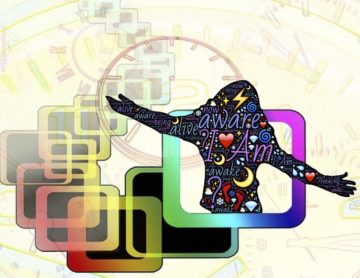Soundtrack in my head: Moby “Everloving”

A housemate once told me that I look like someone who has a past. Of course everyone has a past, present and a future. But it’s dawned on me recently that I have not been exactly living in the present.
Let me explain more clearly.
During the twelve years that I lived in Chicago as an adult, I had a career in fundraising. The last five years involved running and serving as the sole staff person of a tiny not-for-profit organization. I had a number of accomplishments during that span of time. That career ended for a number of reasons, chief among them being that I did not want to continue in fundraising, at least not in the capacity that I had been doing so up until that time.
When I landed in Madison (the complex reasons of how and why to be told later) , I was unemployed, scared, and overwhelmed. I survived on temp jobs for about a year before landing my current position doing clerical work for an insurance company. I hadn’t originally intended to stay for very long, and tried multiple times to find other positions within the company that I thought would better suit my skills—without success. My initial reaction was anger and frustration, which I think I carried with me to some extent into my work as well as job interviews.
I was reading a book that talked about the notion of “spiritual economics,” a concept that I’d heard about before, but which never really quite registered or resonated with me—until now. My understanding of “spiritual economics” is that there are other forces that influence one’s own prosperity besides well-established economic theories. Spiritual economics is based on a belief that God ultimately arranges everything. This does not mean that we sit back passively and wait for God to hand us things on a platter, nor does it means that we abandon making smart financial and career decisions. What it does mean though, is that that there are waves and joints in life, that people probably will experience some degree of hardship along the way, and that God arranges these things in order to help us grow.
I need to doubly emphasize that this does not take responsibility off our shoulders, nor does it mean that we will automatically be granted prosperity just because “we’re good people.” It may very well be that for many of us, the training God gives us is intended for us to take control of our careers, make smart business decisions, and do whatever one needs to do in the physical world in order to succeed. But how one goes about doing it is important, too. If we get too caught up in competition, if we are so money-focused that we lose our sense of service to others, and if forget the reason why we are working in the first place, then it will probably catch up with us at some point. I think we are seeing that more and more in today’s world.
This morning this book on spiritual economics gave me a rather profound shift in my thinking. I had been carrying a lot of anger and self-judgment about my current situation, and in almost an instant, most of it disappeared. I got off the bus suddenly feeling a lot lighter about my situation than when I’d gotten on the bus. And literally that morning, as a result, I discovered that the way that many of my co-workers related to me suddenly seemed to change for the better as well, with interactions becoming more positive and amicable.
What caused the shift is realizing that I’m living the good life right now. While in the long run, I want something that makes more money and makes better use of my skills, there are some aspects to my job that are challenging and interesting. It gives me the space to pursue other interests. The health benefits and other benefits are among the best available. Sure, I would like to be able to save more for my future. These are things I still need to plan for, and plan for now. But I’m living in a co-op community, fulfilling a dream that I had for at least ten years, and I’m now enjoying the opportunities I have to write and share my experiences online.
For most of my adult life, part of me has been resistant to letting others define for me what success is, while at the same time the other half of me has internalized those very definitions. It’s clear to me now that one’s paid job only partially defines who we are. In that spirit then, I can say that I am a writer, a community organizer, and an indexer of imaged documents, fully grateful for the personal growth that all three roles give me, and grateful for the level of material prosperity that the latter of three jobs gives me right now..
